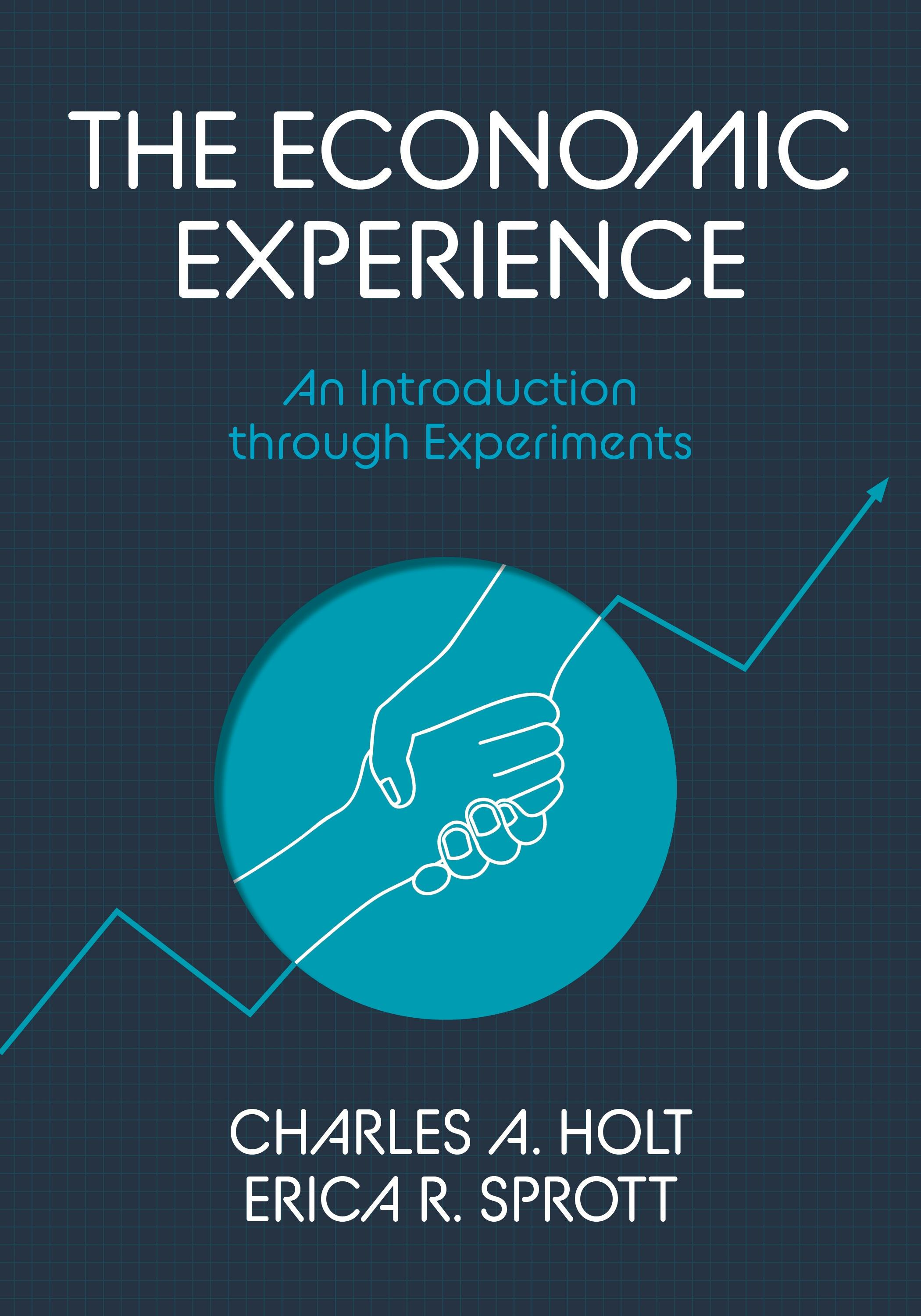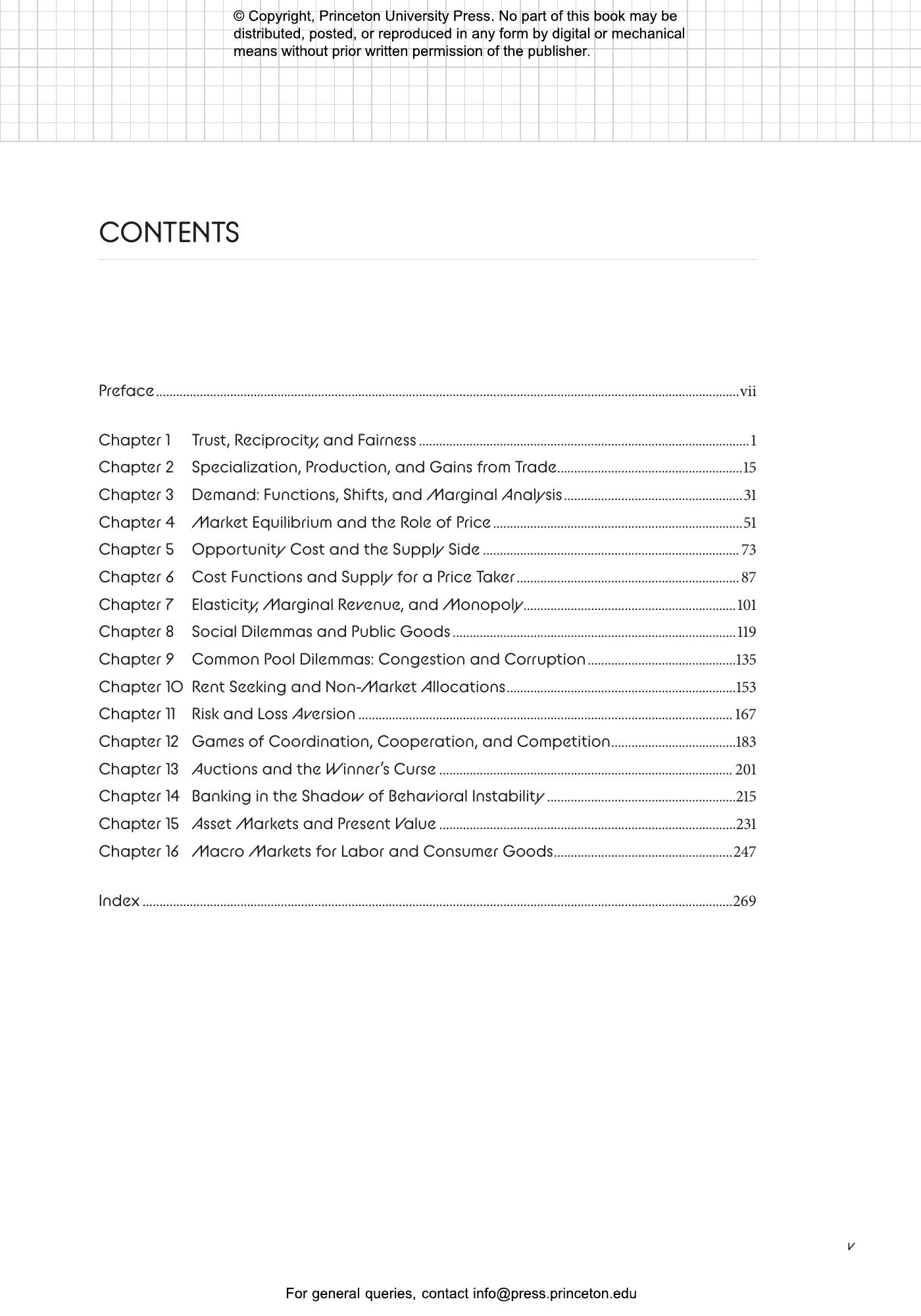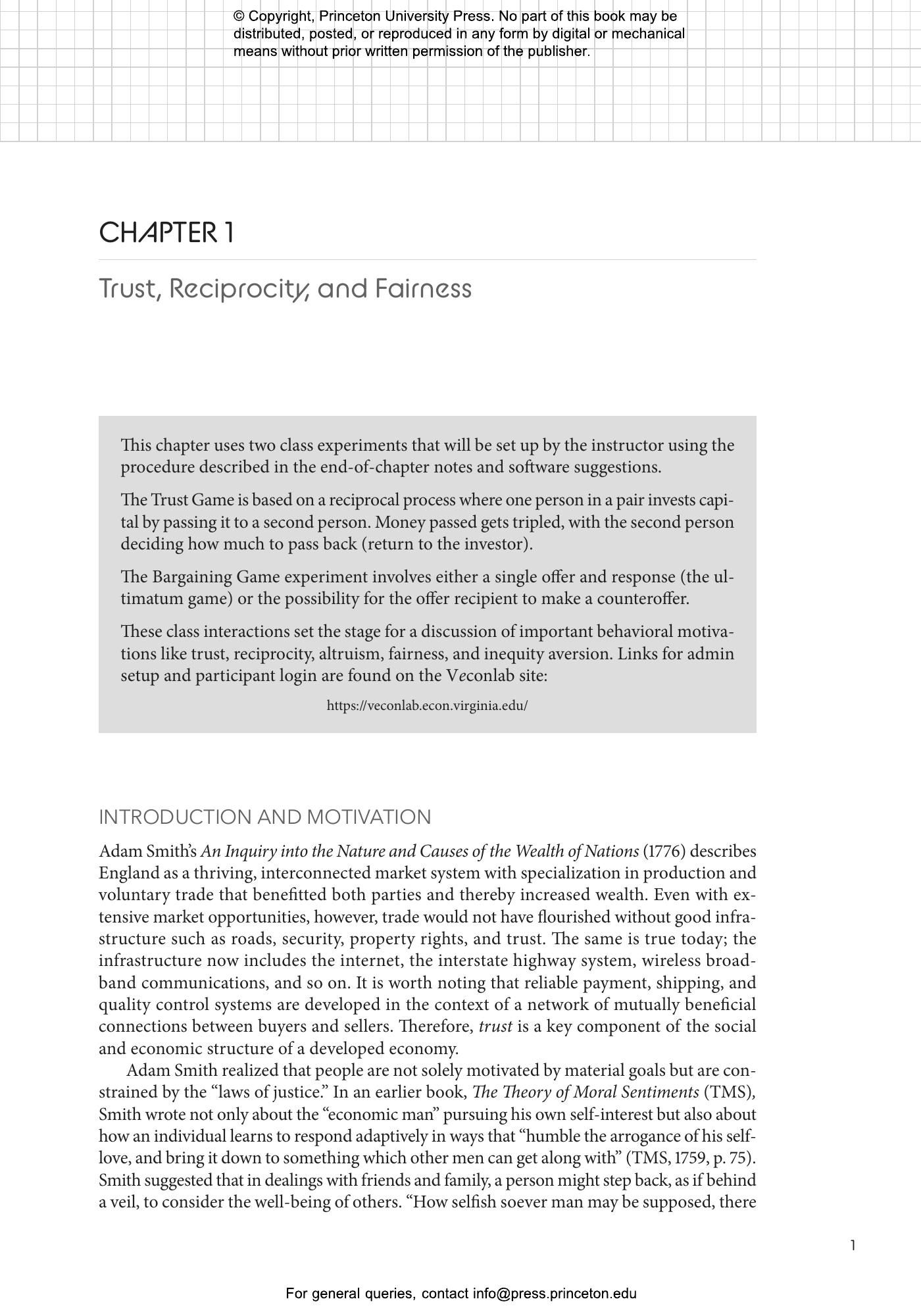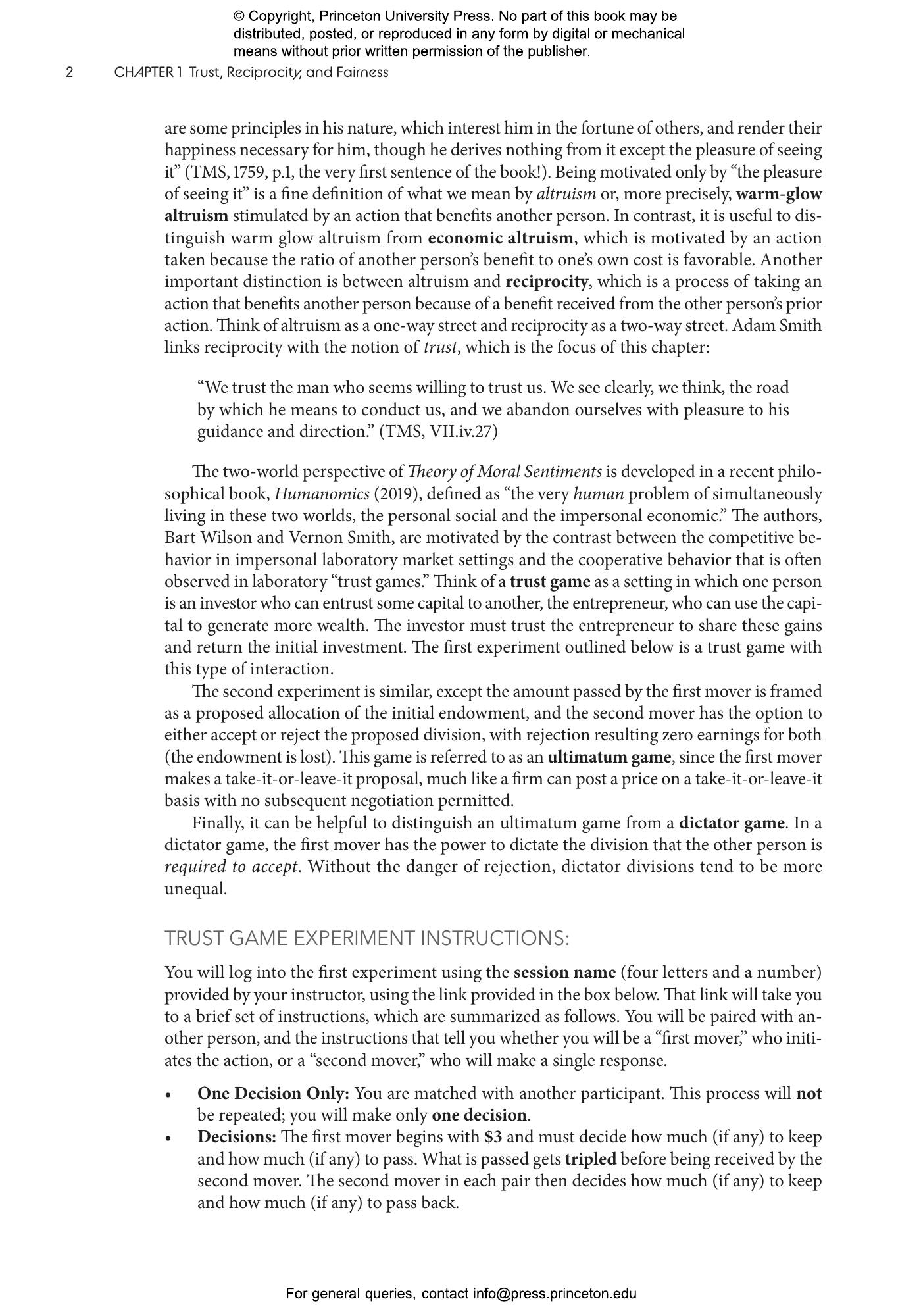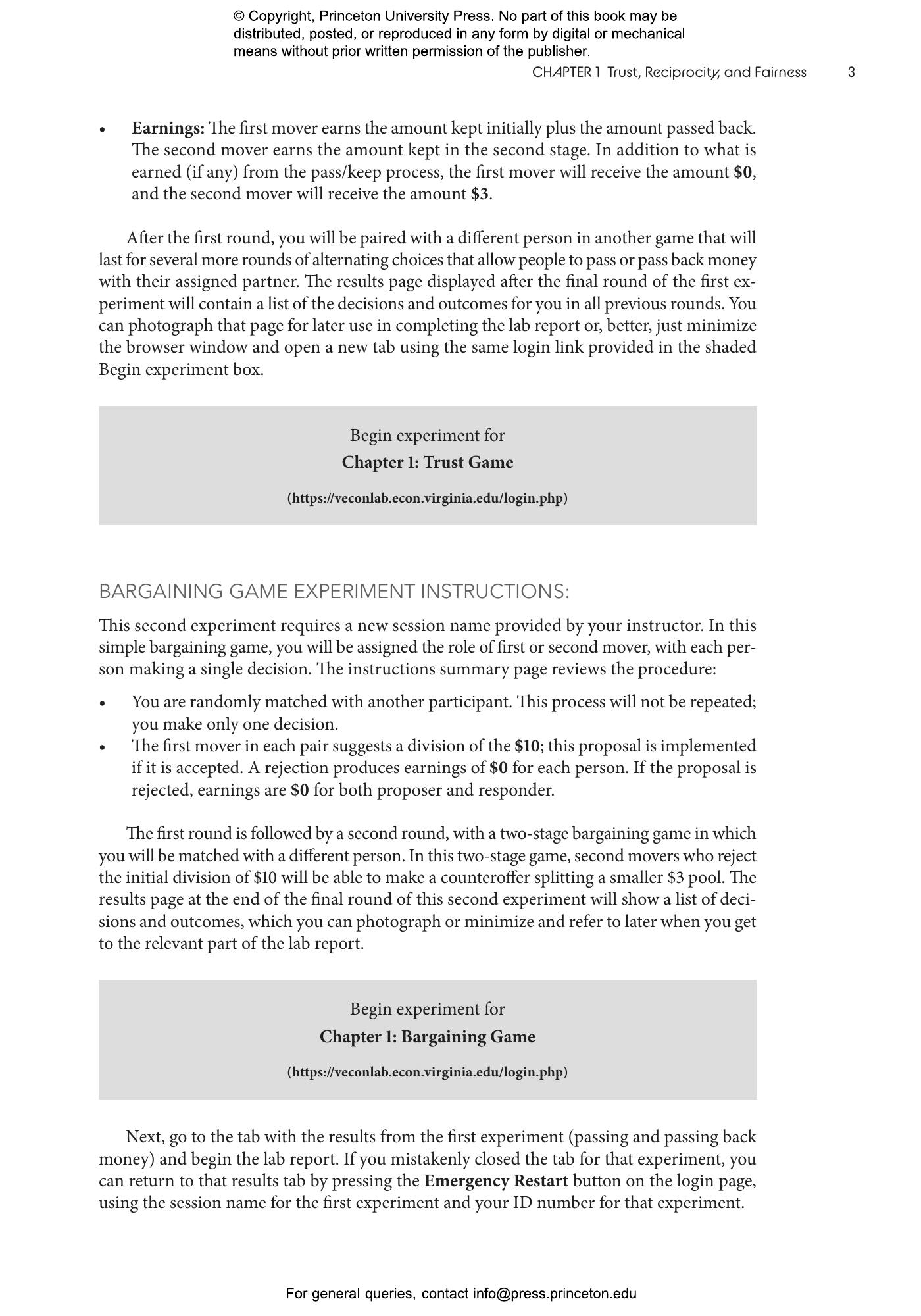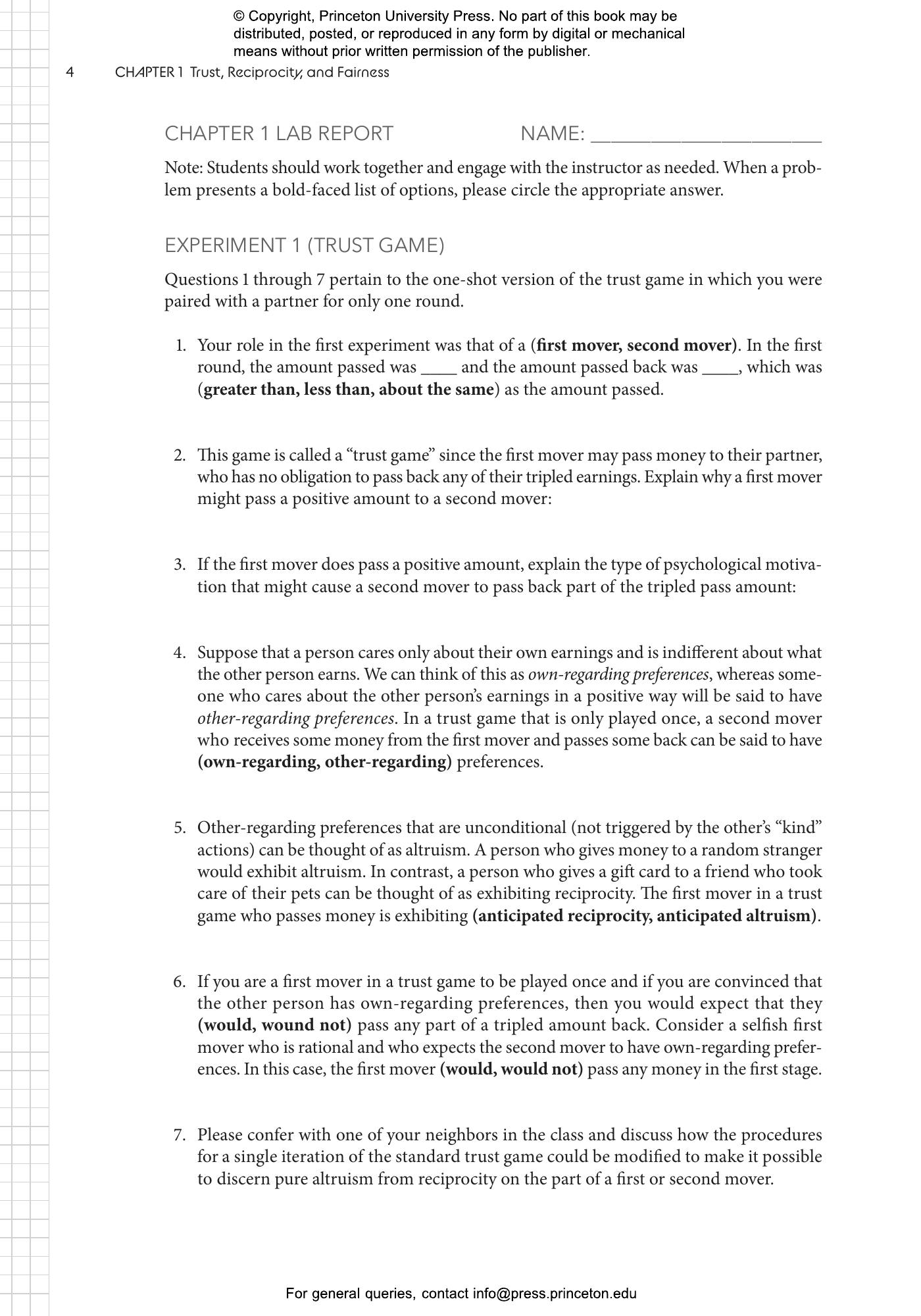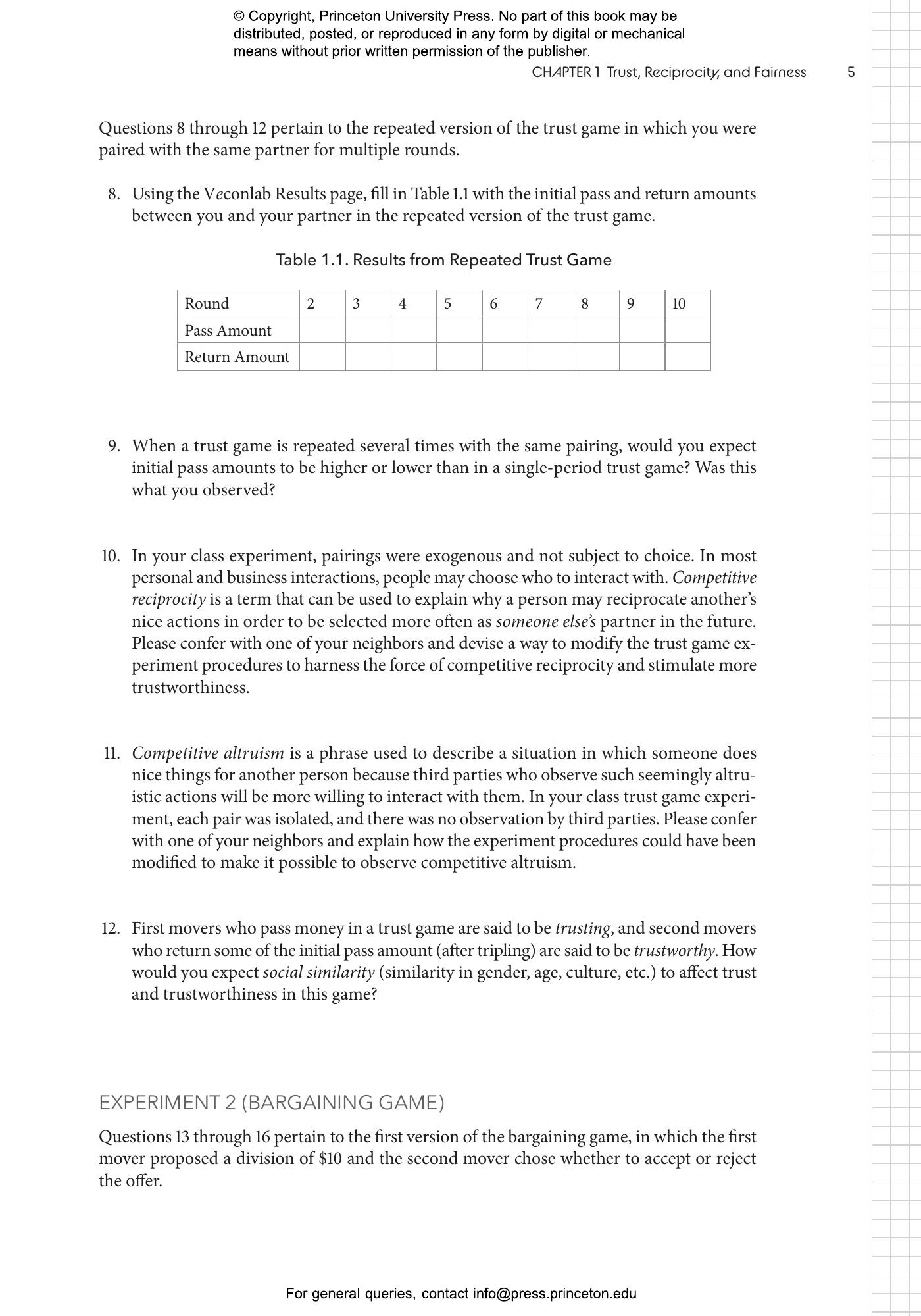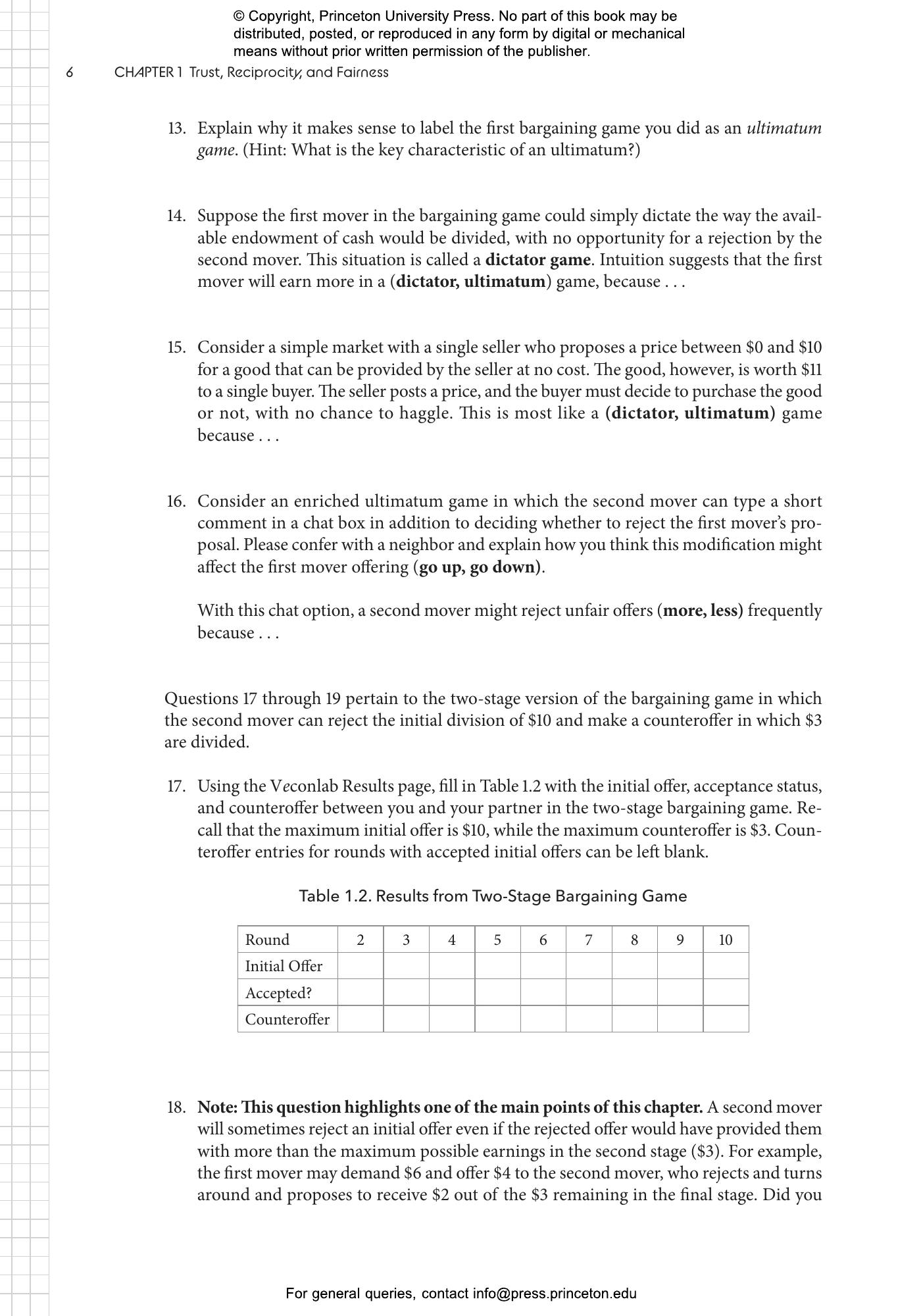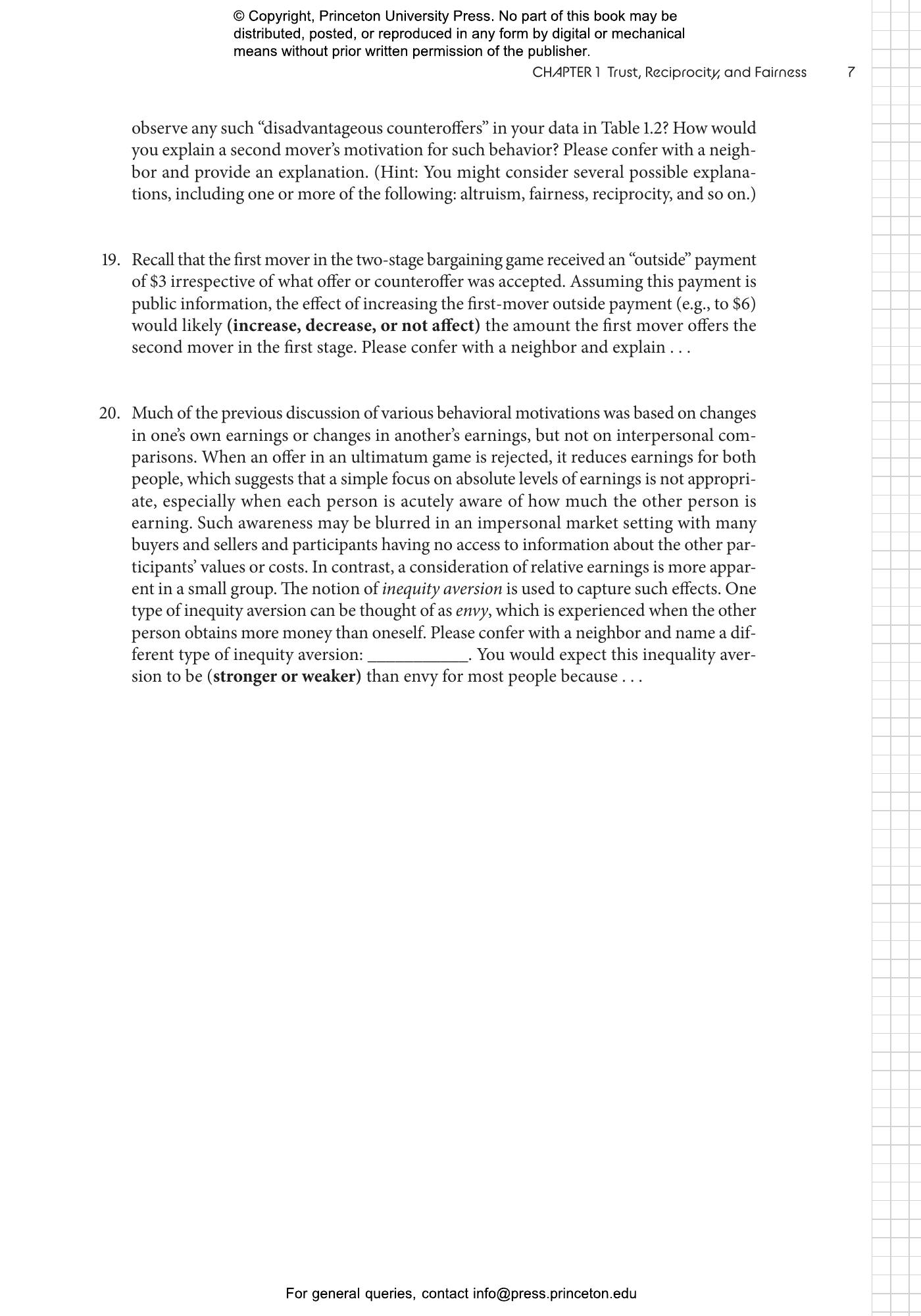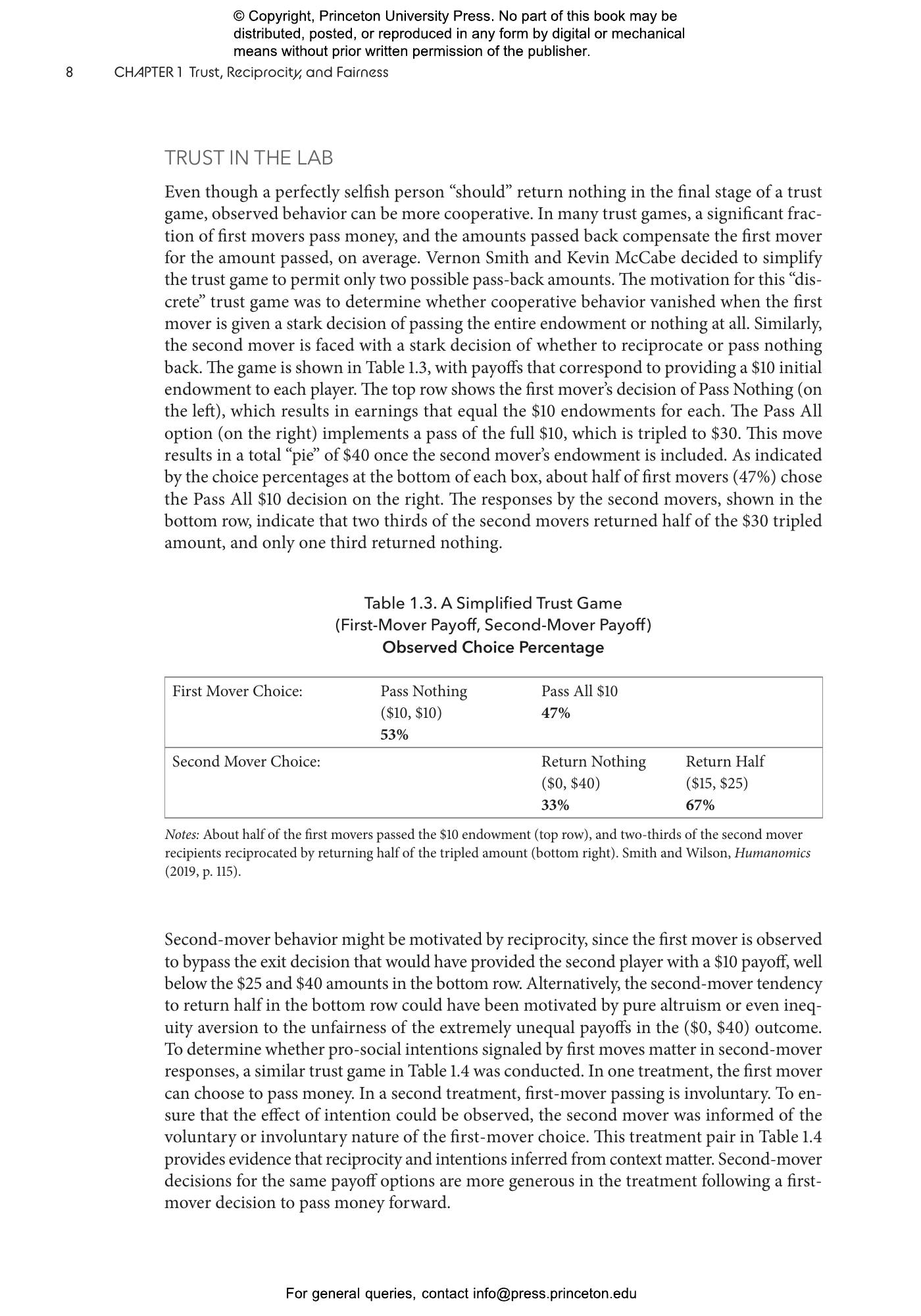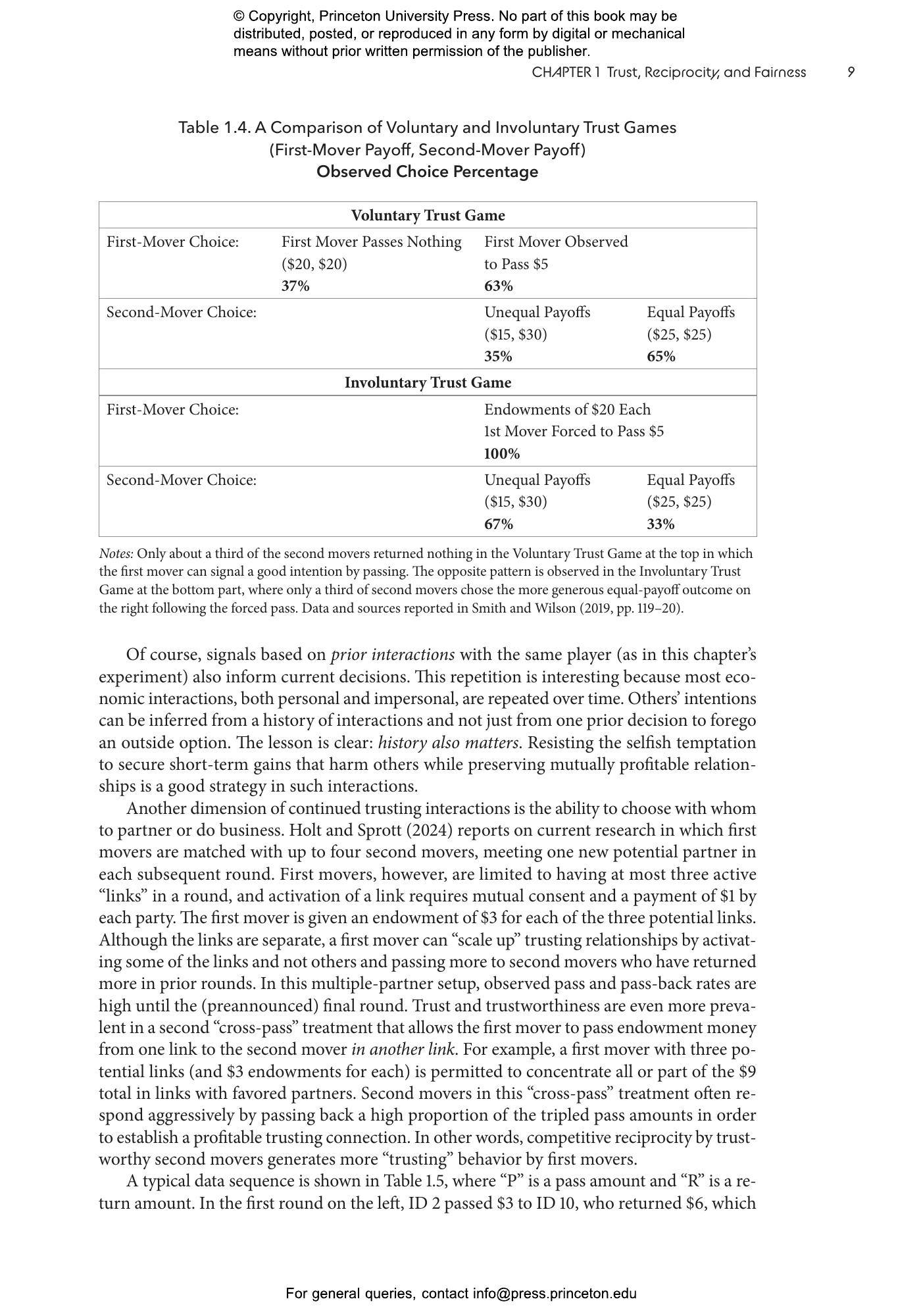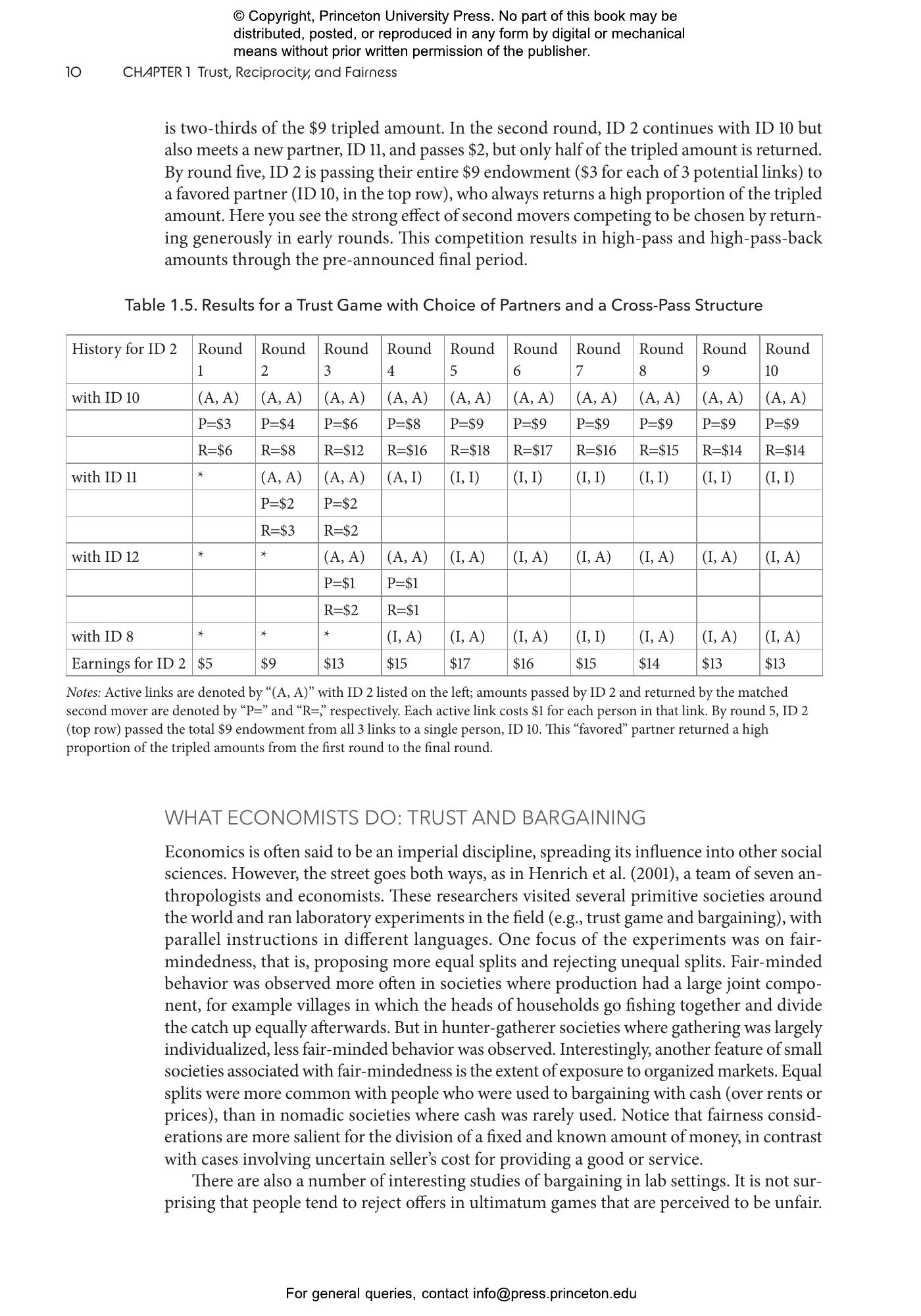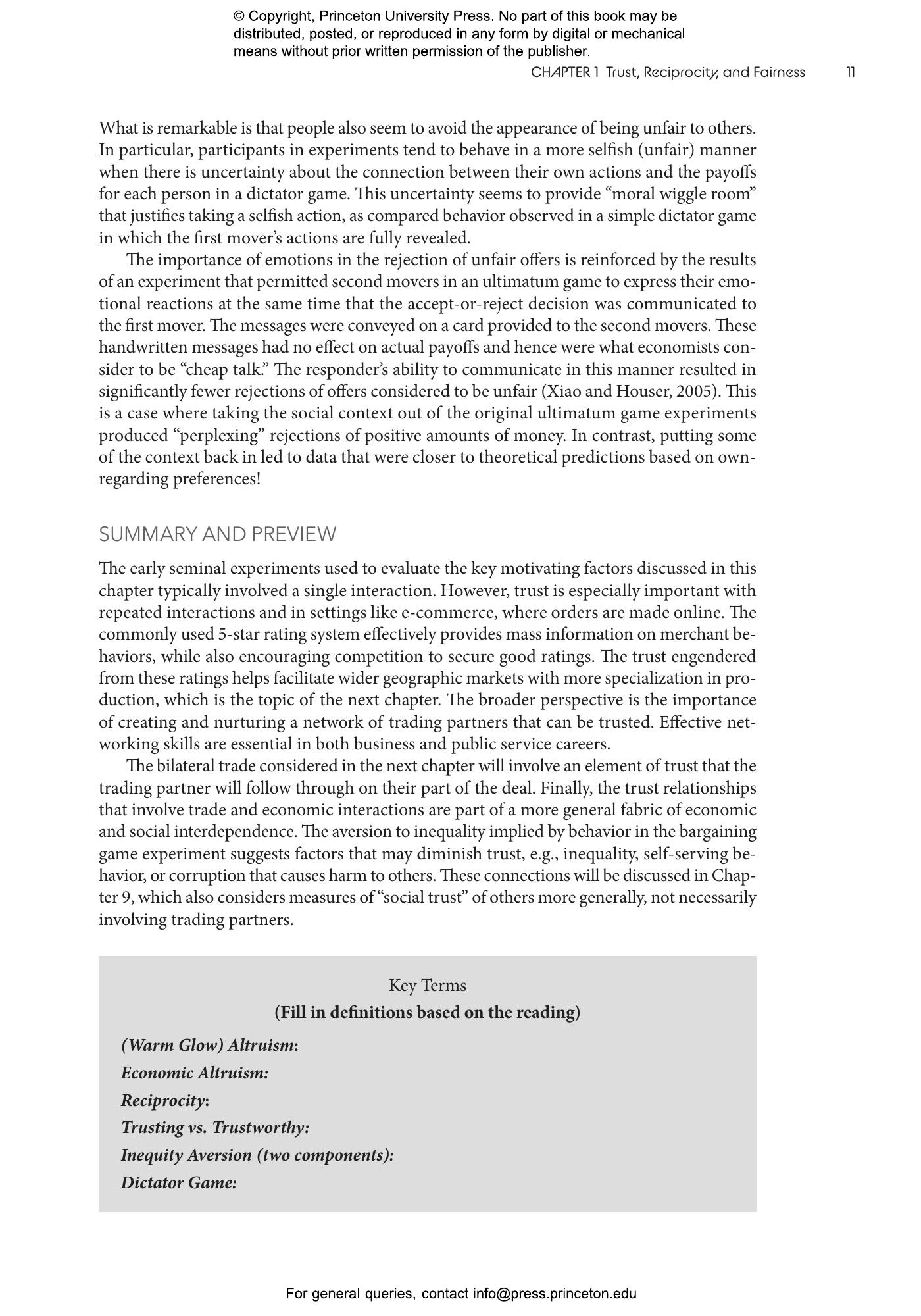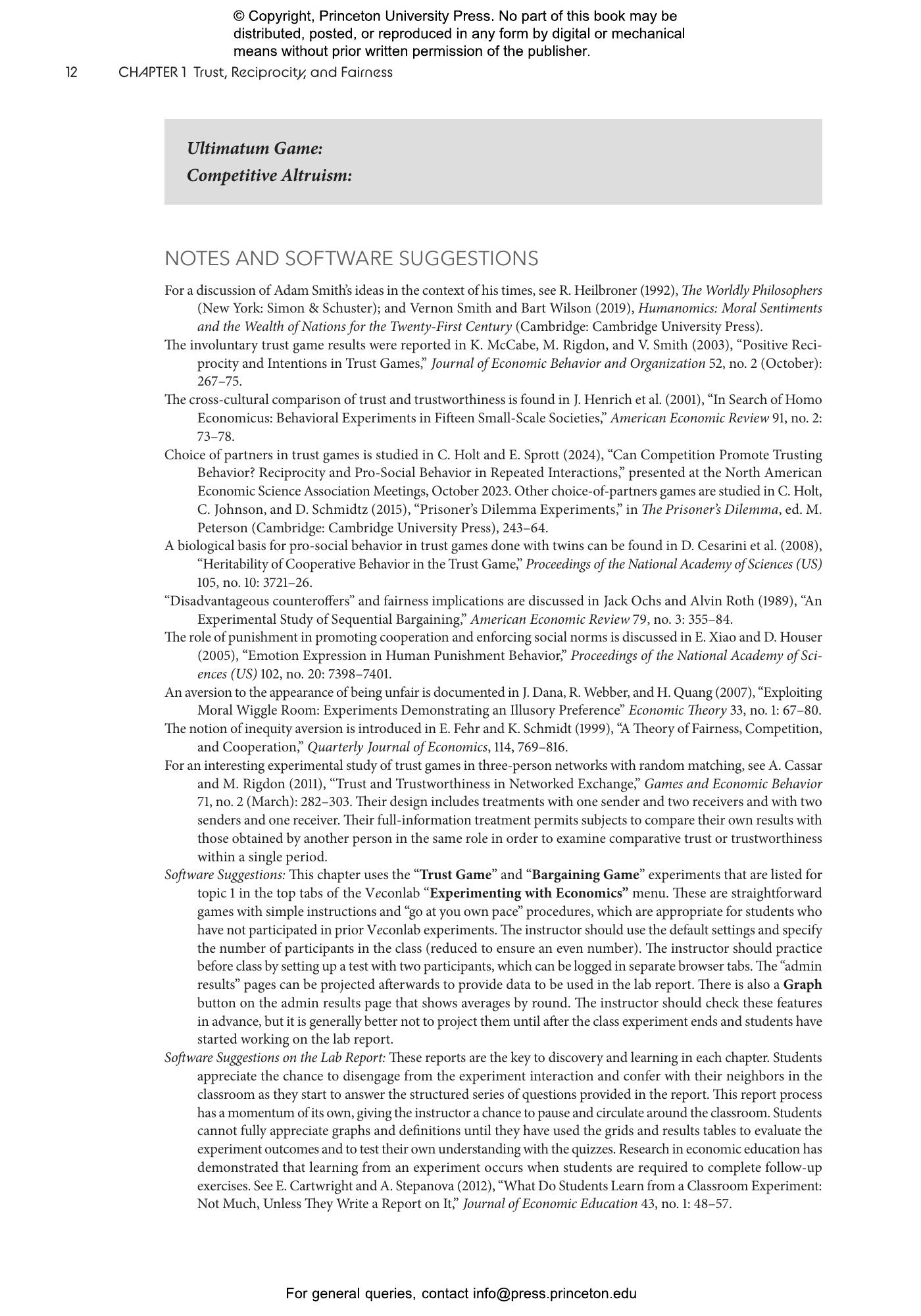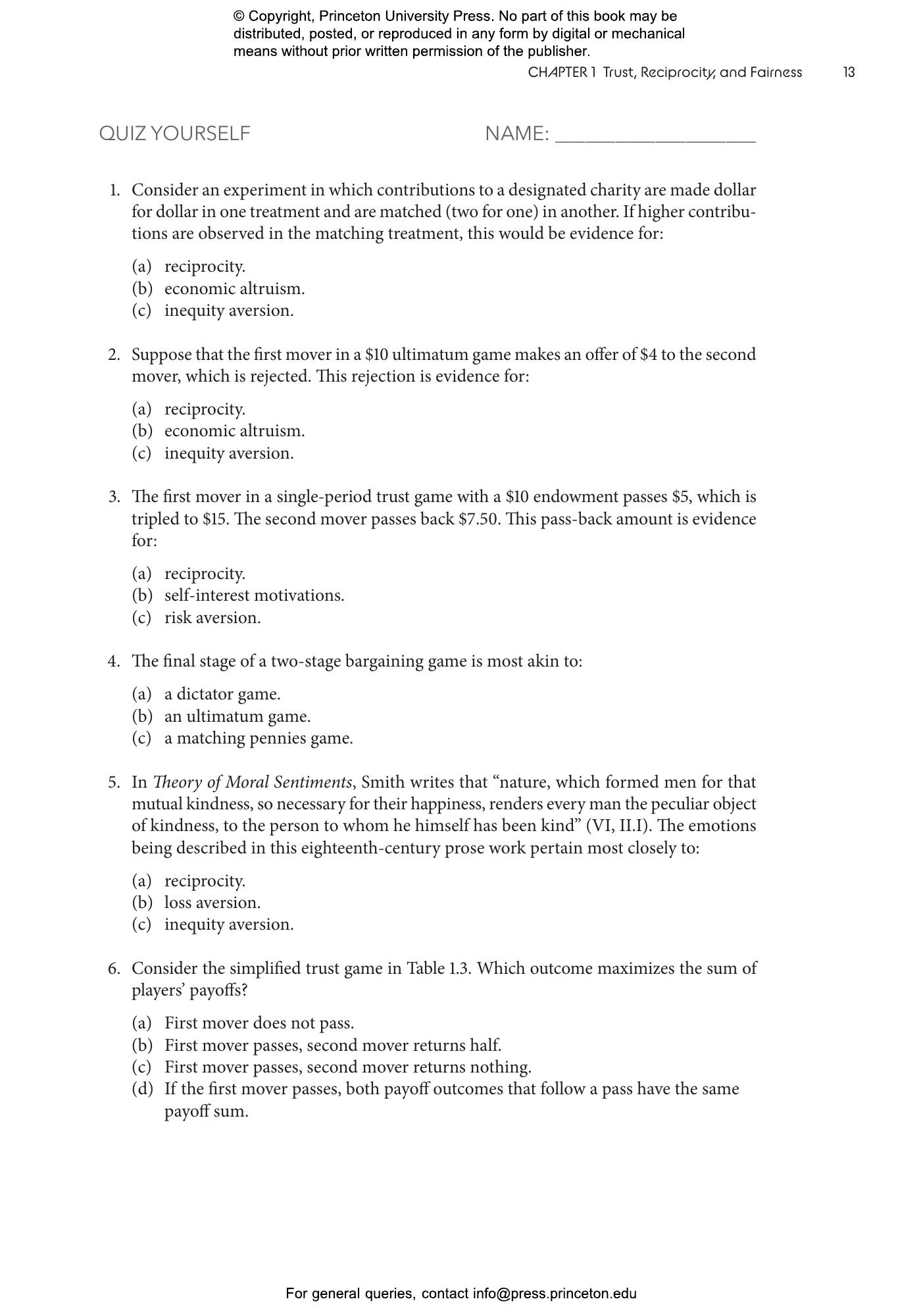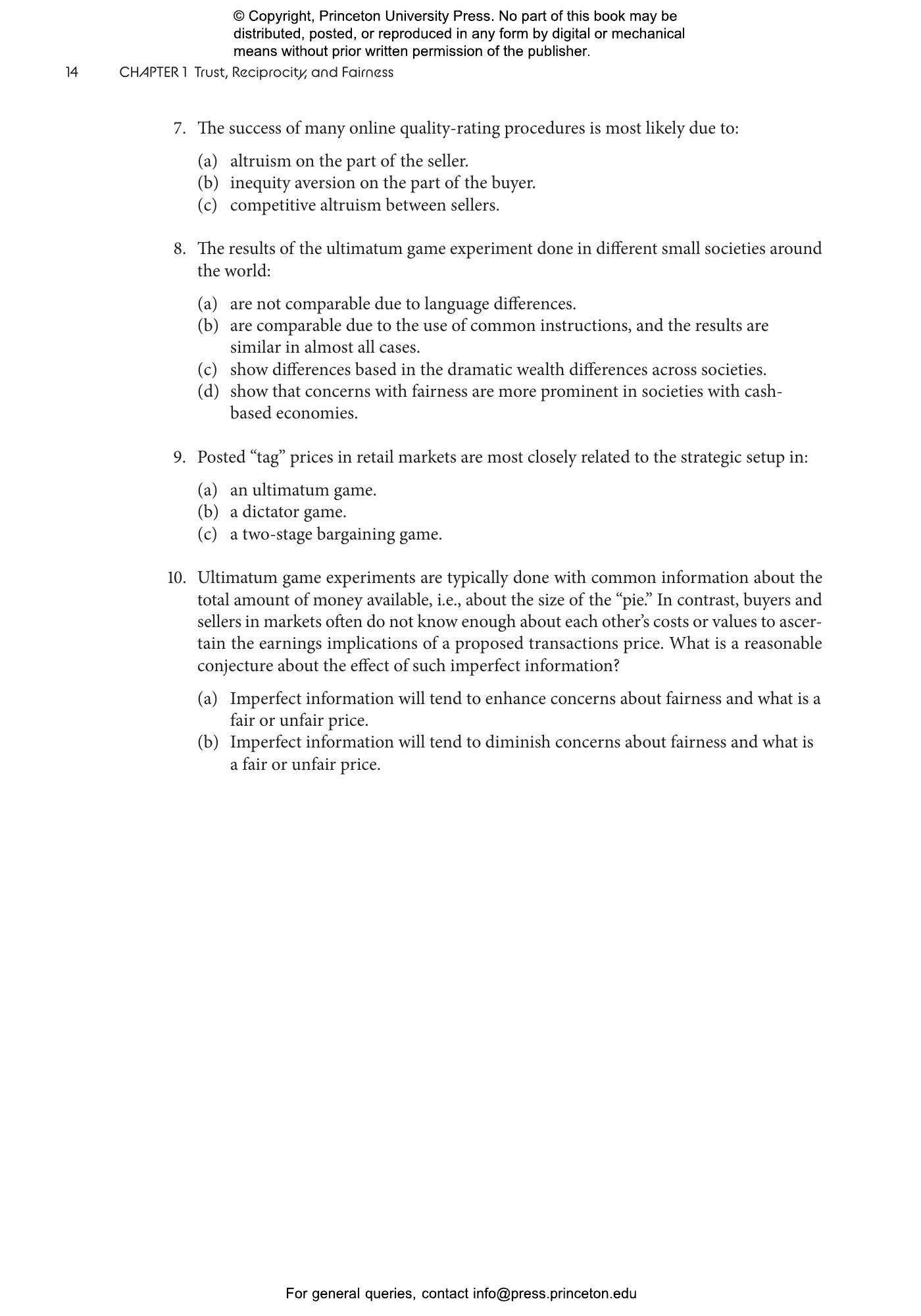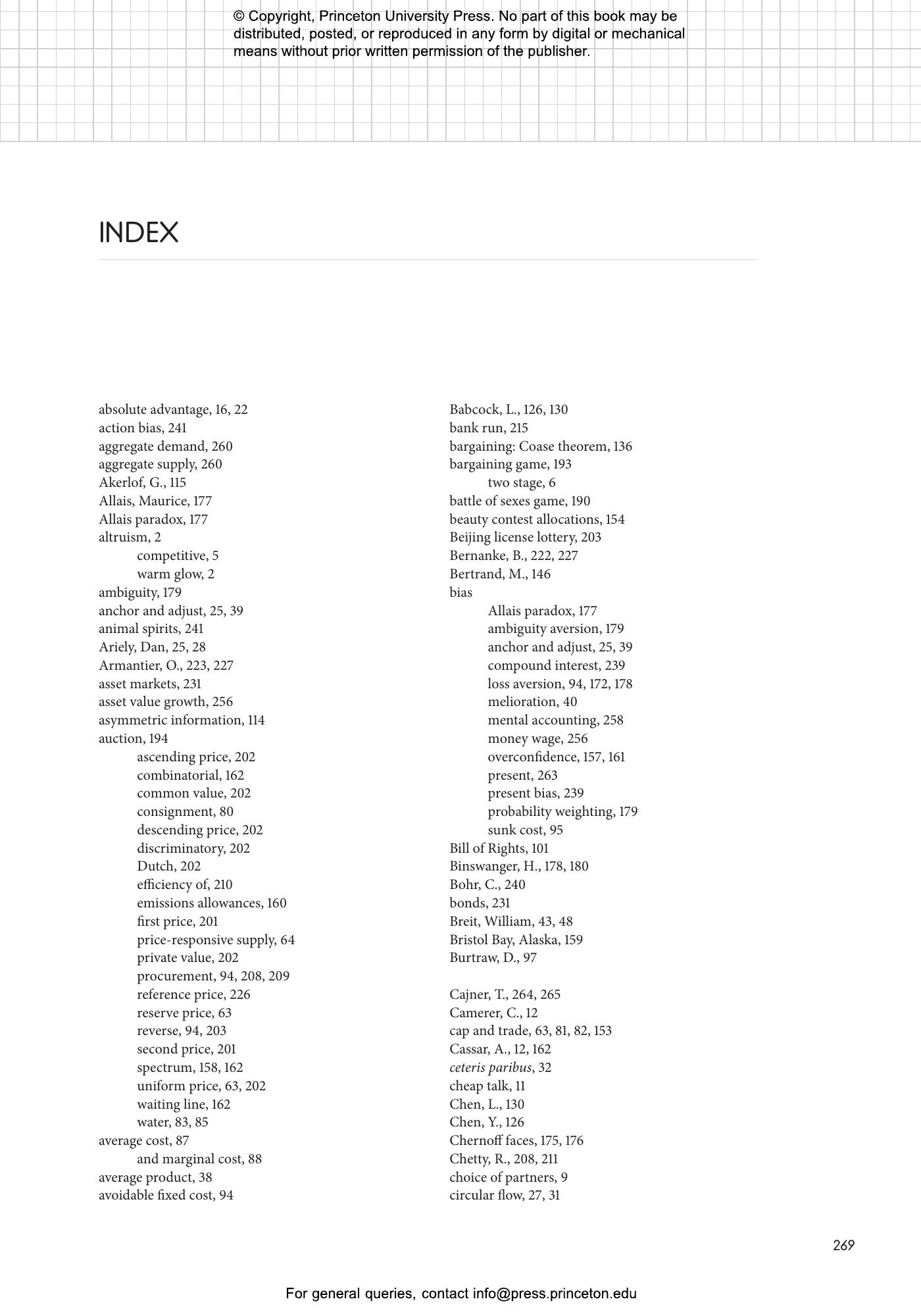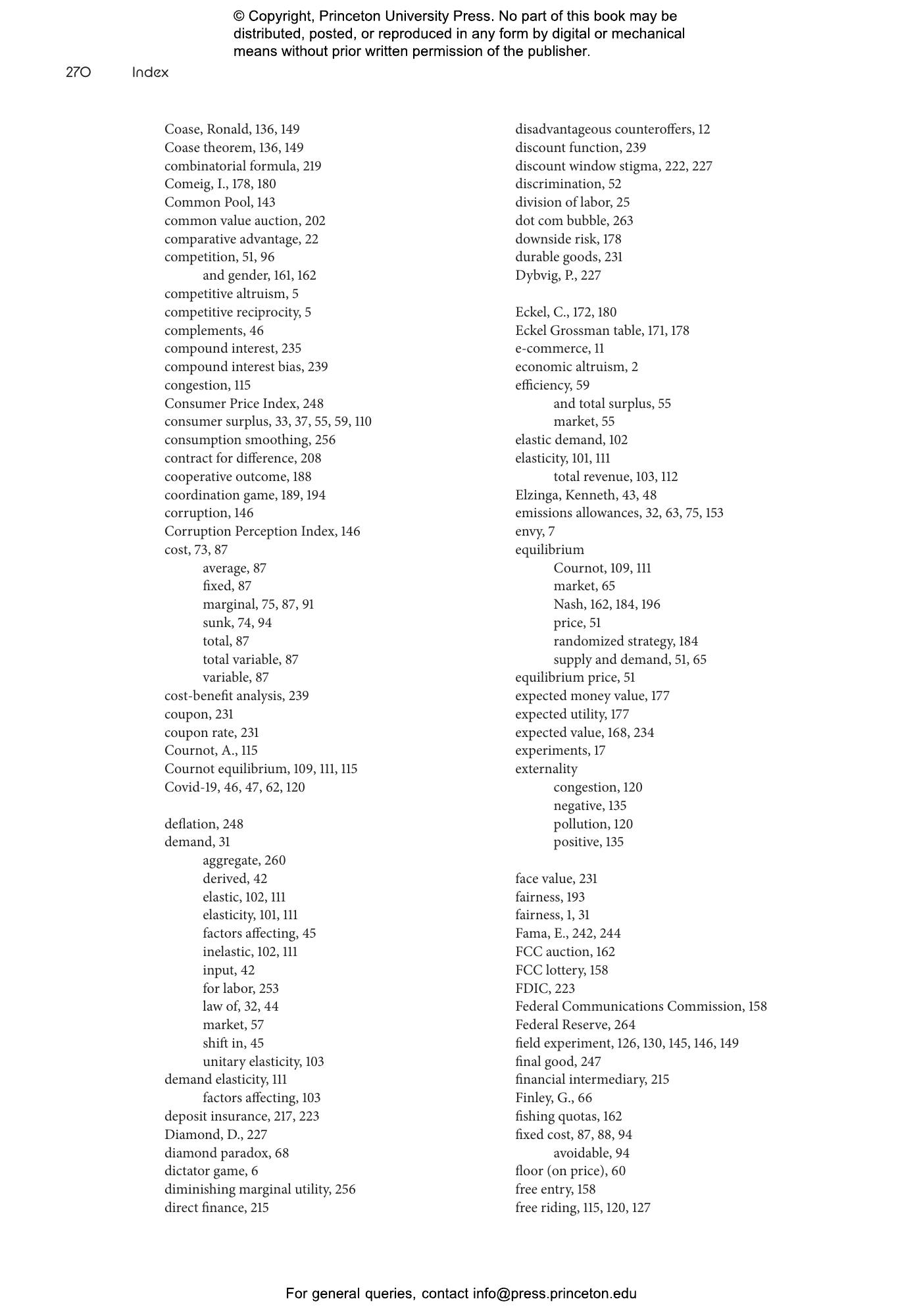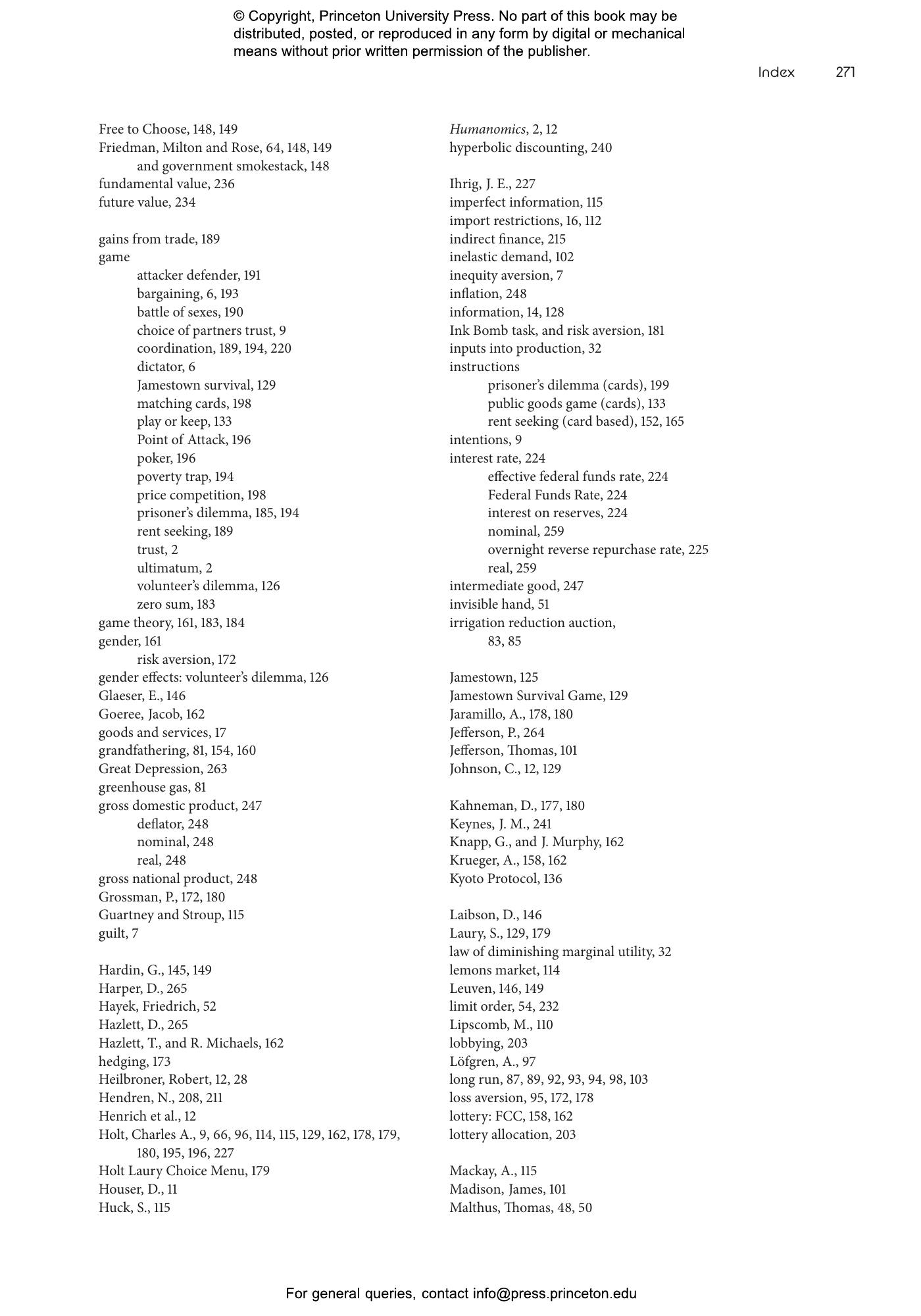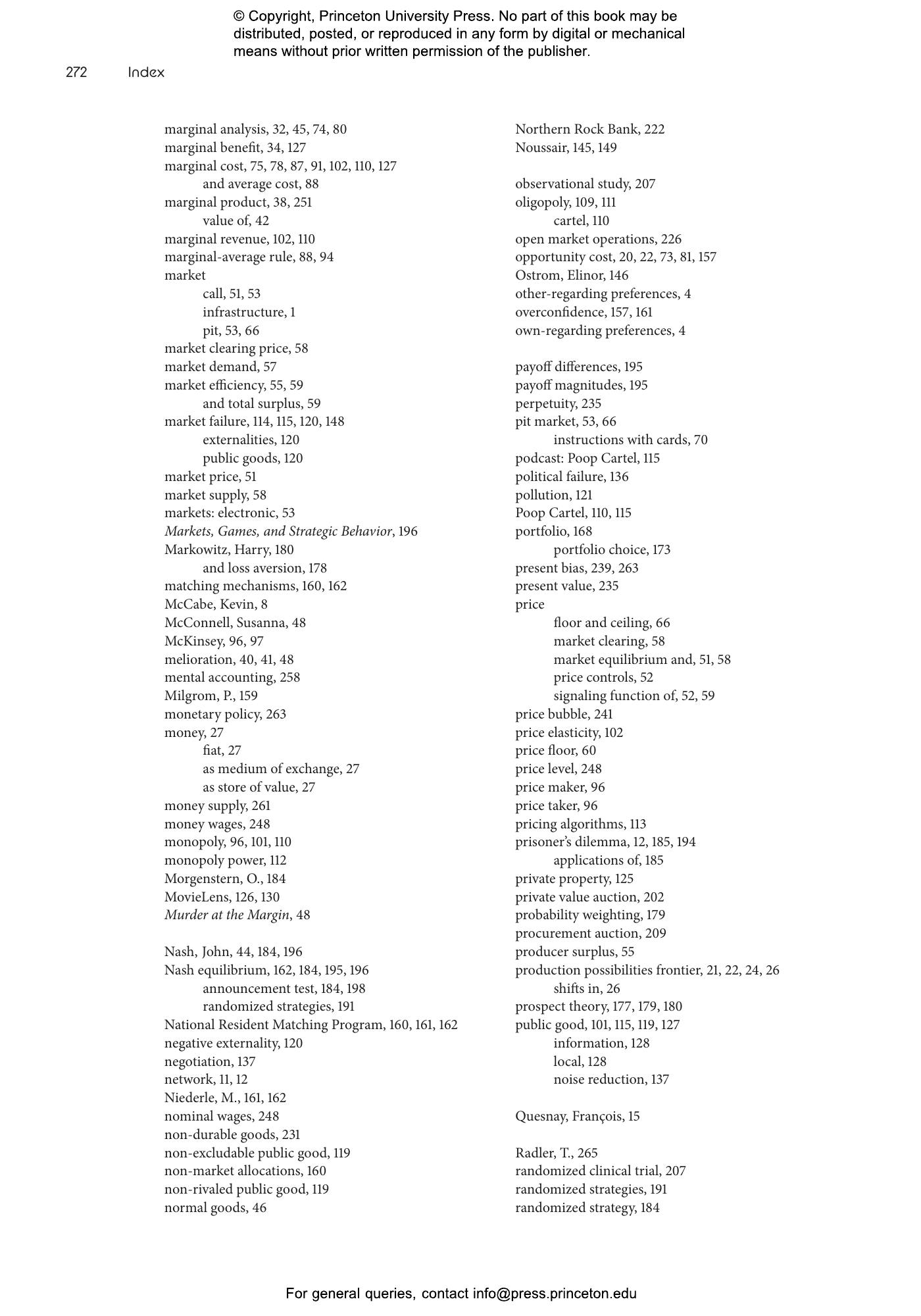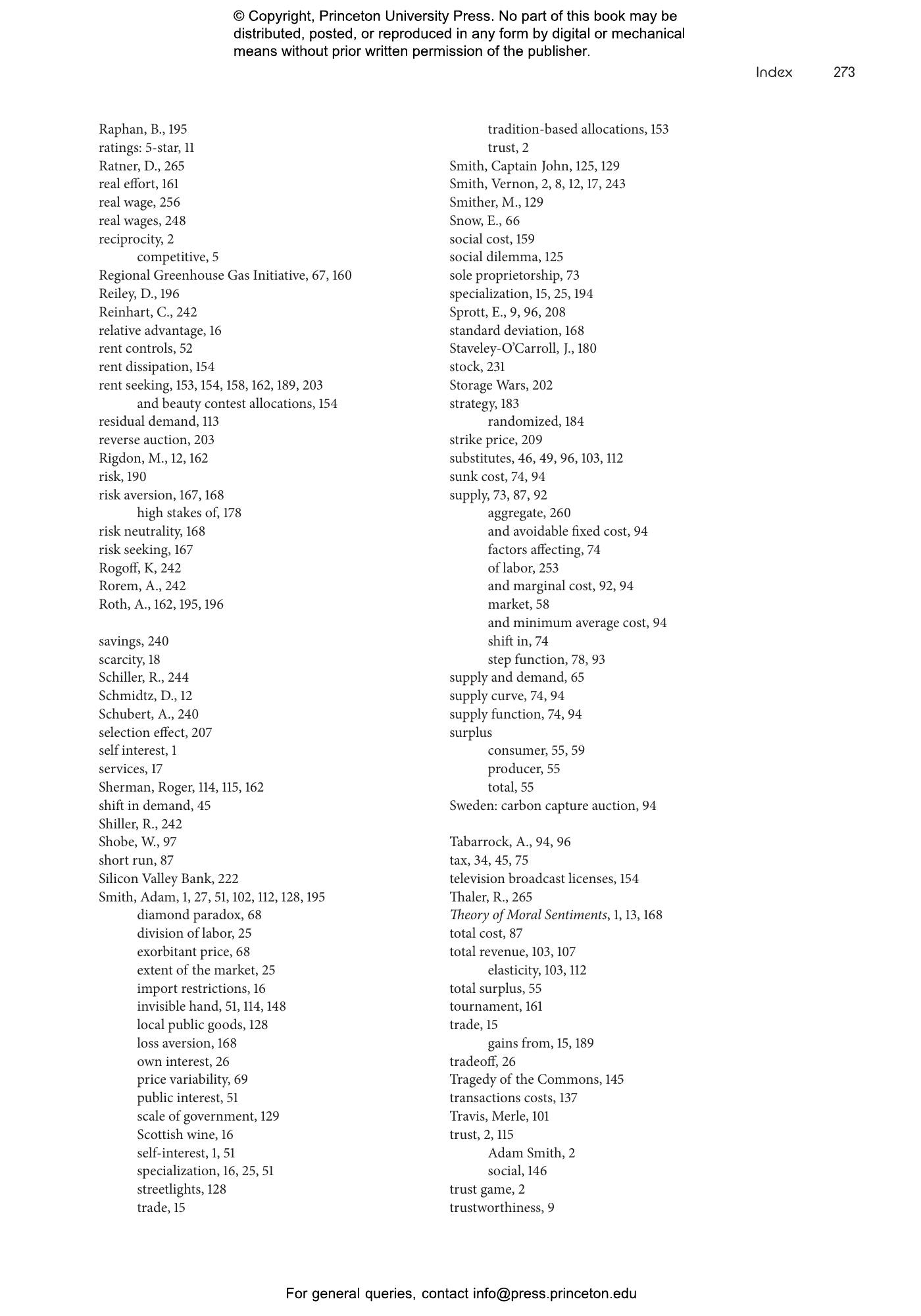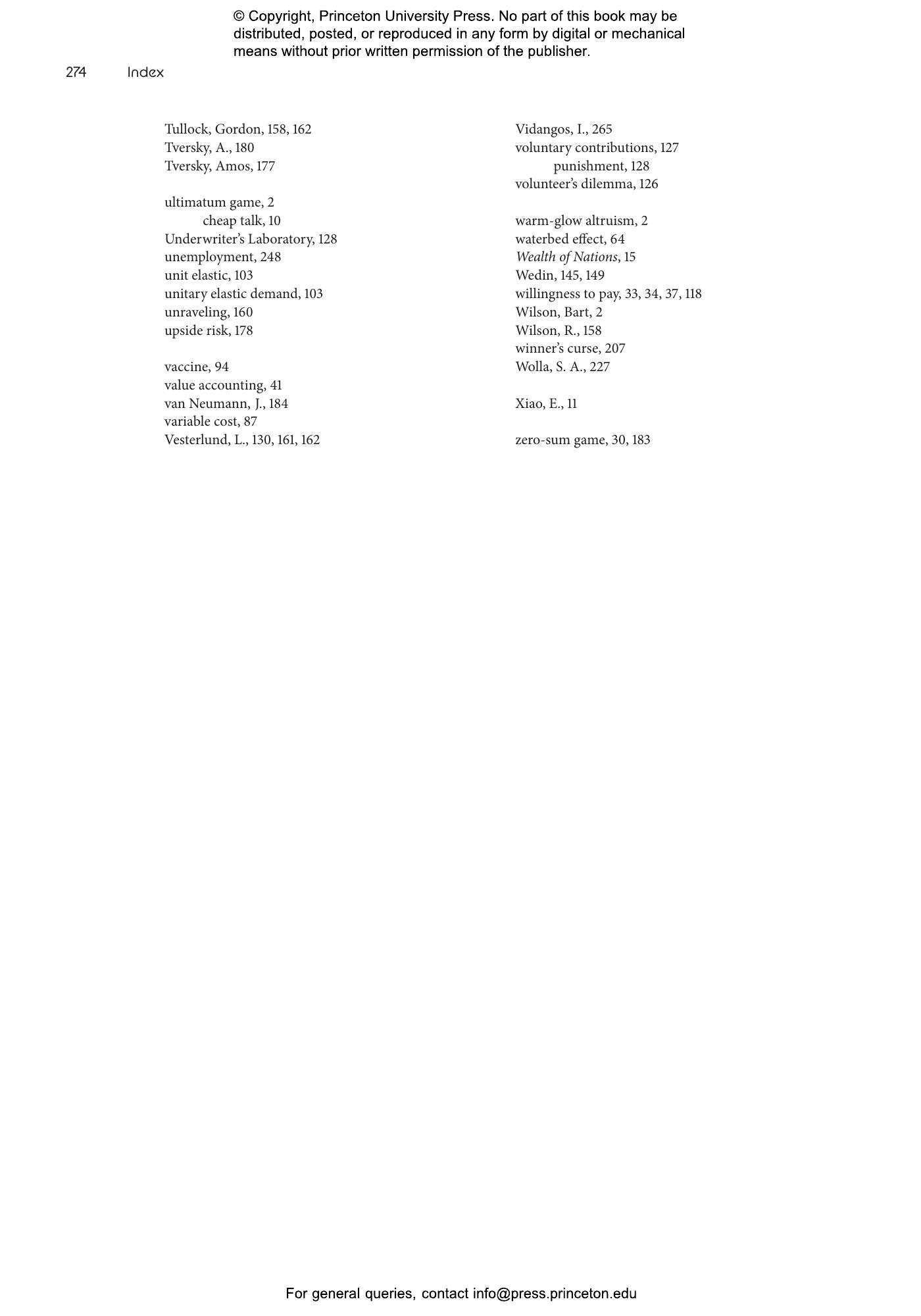This book presents a unique active-learning approach to economic thinking, providing a behavioral perspective on basic economic concepts ranging from trust to trade. Each chapter features a classroom experiment where students engage directly with the material as market participants, and chapters come with warm-up exercises, quizzes, and incisive summaries. The Economic Experience empowers students to develop insights into essential economic principles and goes beyond merely documenting behavioral anomalies by showing students how to navigate and anticipate them through hands-on learning and team building.
- Encourages discovery of key behavioral insights with interactive class simulations
- Provides a Socratic structure through lab reports for interpreting and applying lessons from experiment results while interacting with fellow students
- Includes “What Economists Do” sections that highlight key applications and policy issues
- Covers standard topics such as gains from trade, marginal analysis, and the resilience of competitive markets
- Enables students to experience the negative effects of market imperfections related to monopoly power, non-price rent seeking, corruption, congestion, and inadequate incentives for the provision of public goods
- Introduces notions of risk and strategic behavior in games and auctions
- Explains foundational macroeconomic concepts such as financial markets and the role of money while addressing behavioral issues like bank runs and asset market price bubbles that may arise in a macroeconomic setting
- Is supported by a free website that instructors can use to set up classroom experiments online
Charles A. Holt is the A. Willis Robertson Professor of Political Economy at the University of Virginia. His books include Experimental Economics (with Douglas D. Davis), Markets, Games, and Strategic Behavior, and Quantal Response Equilibrium (with Jacob K. Goeree and Thomas R. Palfrey) (all 91��ɫ). Erica R. Sprott is a doctoral student at the Harvard Kennedy School and a National Science Foundation Graduate Research Fellow.
- Chapter 1 Trust, Reciprocity, and Fairness
- Chapter 2 Specialization, Production, and Gains from Trade
- Chapter 3 Demand: Functions, Shifts, and Marginal Analysis
- Chapter 4 Market Equilibrium and the Role of Price
- Chapter 5 Opportunity Cost and the Supply Side
- Chapter 6 Cost Functions and Supply for a Price Taker
- Chapter 7 Elasticity, Marginal Revenue, and Monopoly
- Chapter 8 Social Dilemmas and Public Goods
- Chapter 9 Common Pool Dilemmas: Congestion and Corruption
- Chapter 10 Rent Seeking and Non-Market Allocations
- Chapter 11 Risk and Loss Aversion
- Chapter 12 Games of Coordination, Cooperation, and Competition
- Chapter 13 Auctions and the Winner’s Curse
- Chapter 14 Banking in the Shadow of Behavioral Instability
- Chapter 15 Asset Markets and Present Value
- Chapter 16 Macro Markets for Labor and Consumer Goods
“An ingenious book that teaches introductory students about trust and trade among economic agents and deepens the economic way of thinking for advanced students in law, business, and public policy. The organization of the material is brilliant. The exercises will challenge but not overwhelm newcomers and will add value to students already exposed to behavioral economics. A rare confluence of textbook and treatise.”—Kenneth G. Elzinga, University of Virginia
“Designed as both a supplement to traditional economics textbooks and a standalone resource, this book offers a dynamic approach to teaching undergraduate economics. Through carefully crafted experiments, Charles Holt and Erica Sprott provide instructors with engaging, hands-on activities that reinforce fundamental economic principles in a memorable way. Each experiment is thoughtfully constructed and clearly described, making it easy for professors to integrate them into their courses. Whether you’re looking to clarify complex theories or create a more interactive learning environment, this book is the perfect tool to deepen student understanding and make economics come alive in the classroom.”—Lee Coppock, University of Virginia
“Experiments have had a huge impact on behavioral economics, and Holt and Sprott’s book aims to make teaching economics, through experiments, easy on instructors and fun for students.”—Alvin Roth, Stanford University
“Holt and Sprott, nationally recognized experts in using experiments and games, have developed a groundbreaking resource for economics educators seeking to engage students through interactive, experiment-based learning. This book presents a structured approach, with each chapter outlining clear learning objectives, practical implementation guidance, and effective debriefing techniques. By leveraging a behavioral-focused, experience-based methodology, students actively explore key economic principles and deepen their understanding through real-time outcomes. Enhanced by an integrated online platform that streamlines experiment facilitation, this book is an indispensable tool for fostering dynamic and impactful economics education.”—Gail Hoyt, University of Kentucky


